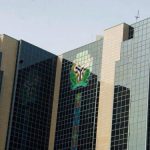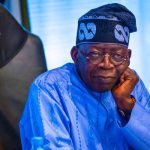
A telecom expert has warned that subscribers will bear the burden of the Federal Government’s reintroduction of a 5 per cent excise duty on telecommunications services.
The Director at Adaba Consult, a telecom consultancy firm, Ejike Onyeaso, explained that the implications of the tax would significantly affect consumers, who were already grappling with economic hardships.
“The various communication companies are going to pass the cost to subscribers, further worsening the current economic situation we have,” Onyeaso told The PUNCH.
Initially introduced in 2022, the excise duty faced significant backlash from industry stakeholders and consumers, leading to its suspension in July 2023 by President Bola Tinubu.
At the time, the President ordered the suspension of not only the telecom excise duty but also the import tax adjustment levy on certain vehicles, citing concerns over their impact on consumers and the economy.
The telecom consultant noted that the excise duty was previously removed primarily to alleviate the financial strain on subscribers, making its reintroduction a matter that needs serious reconsideration.
“The government needs to revisit this decision because, in the end, subscribers will be worse off,” he added.
Onyeaso also stressed the importance of raising public awareness regarding the impact of such tax increases.
He argued that there was a need for better communication between the government and telecom companies to help consumers understand why telecom service costs might rise.
“The right thing to do is create awareness so that subscribers understand the implications of this excise duty,” he advised.
The excise duty, which is part of a broader tax reform bill currently under review by the National Assembly, seeks to impose similar duties on various sectors, including gaming and betting.
Onyeaso noted that it was essential for the government and telecom operators to engage in dialogue that highlights the negative consequences of the tax on subscribers.
“Consumers deserve to know that any increase in telecommunication operations’ costs may not just be a decision made by mobile network operators but a direct result of government-imposed taxes,” he said.
Earlier, the President of the Association of Telecommunications Companies of Nigeria, Tony Emoekpere, expressed concern that the excise duty would have a negative impact on the telecom sector, which is already struggling to sustain its operations.
“We are here to see how this excise duty will affect the industry, but it seems clear that it will hurt both telecom companies and consumers.
“The implementation of an excise duty is challenging because it is typically a fixed fee, unlike VAT, which is a percentage-based tax. This will be difficult to manage,” he explained.



